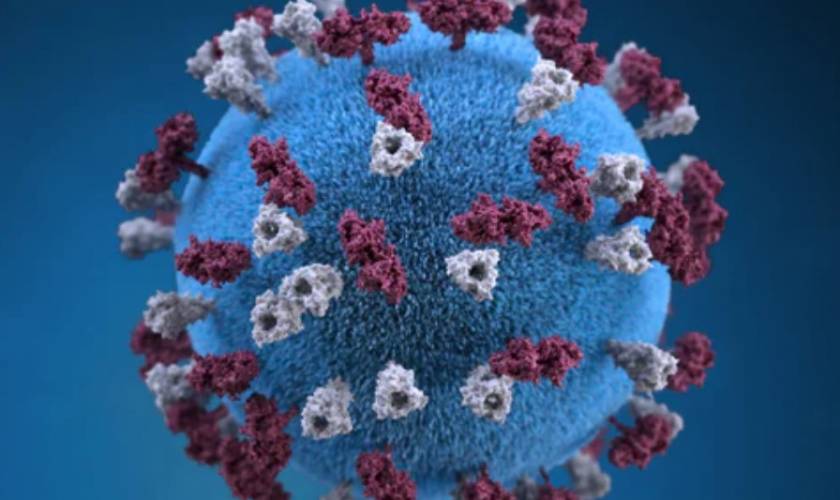If you need more than two hands to count the number of lovers you’ve had in your life, new research suggests you might want to worry about your cancer risk. People who have had 10 or more sexual partners had higher odds of being diagnosed with cancer than those who were less sexually active, researchers
Continue Reading...Measles Returns to California for 2020
Measles has hit the Los Angeles area again, with five new confirmed cases. An international traveler who was not vaccinated had measles and exposed four local residents, public health officials confirm. Another case was confirmed in northern California on Friday, according to Jayleen Richards, a public information officer for Solano County Public Health. She gave
Continue Reading...Variations Found in ‘Normal’ Resting Heart Rate
A “normal” resting heart rate can vary significantly among individuals, a new study finds. Your heart rate, or pulse, is how many times your heart beats per minute. One person’s normal daily resting heart rate can differ by up to 70 beats per minute from another person’s normal rate, said Giorgio Quer, of Scripps Research
Continue Reading...No Reason for 45% of Antibiotic Prescriptions
Nearly half of antibiotic prescriptions for Medicaid patients appear to be inappropriate, new research suggests. That kind of overprescribing raises risks for everyone, experts say, as bacteria gain more chances to mutate around the life-saving drugs. For the study, researchers analyzed 298 million antibiotic prescriptions filled by 53 million Medicaid patients between 2004 and 2013.
Continue Reading...Blood Thinners, Bleeding Tied to Colon Cancer Risk
Gastrointestinal bleeding in patients taking blood thinners for an irregular heartbeat should prompt doctors to check for colon cancer, a new study advises. Researchers looked at more than 125,000 patients in Denmark with the heart rhythm disorder atrial fibrillation (a-fib). They reported that those with gastrointestinal bleeding were 11 to 24 times more likely than
Continue Reading...New Study Says Lower Age of First Colonoscopy
The rate of colon cancer among Americans spikes sharply between the ages of 49 and 50, a new study finds — supporting the case for earlier screening for the disease. Researchers say the uptick between those two ages does not reflect an actual increase in the occurrence of colon cancer but the fact that screening
Continue Reading...Could Strep Throat Become Untreatable?
When a child has strep throat, an antibiotic like penicillin usually has them back at school 24 hours later. But a new study warns that strains of bacteria that cause strep throat and “flesh-eating disease” appear close to becoming resistant to penicillin and other antibiotics known as beta-lactams. “If this germ becomes truly resistant to
Continue Reading...First Treatment for Peanut Allergy Approved by FDA
Allergy symptoms include itchy eyes and skin, sneezing, nasal congestion, wheezing, and rash. Seasonal allergies result from grass, weed, tree pollen, or molds. Cat and dog dander allergies are common. Food allergies include peanut or milk. When you have allergies, it means your immune system reacts to something that’s usually harmless. During a reaction, your
Continue Reading...Why Do Babies Rub Their Eyes And How To Prevent Them From Doing It?
A baby rubbing its eyes is usually a sign of fatigue and sleep readiness. Recent researches have also shown that children could have eye fatigue, which leads to eye rubbing due to excess use of digital devices such as smartphones early on in life. In this post, MomJunction will tell you about the probable causes
Continue Reading...Could You Have A Mood Disorder?
If your emotions and moods seem out of your control over a long period of time, you may have a mood disorder. There are several different types, and all of them can be treated. This causes extreme mood swings, from depression to emotional highs called mania. During the highs, you have more energy and your
Continue Reading...Types of Dementia
If someone you love gets diagnosed with dementia, it means he has a progressive and sometimes chronic brain condition that causes problems with his thinking, behavior, and memory. Dementia itself is not a disease, but a syndrome; its symptoms are common to several brain diseases. It will get worse over time. But medications might slow
Continue Reading...Allergies: Basic Info You Need to Know
What Is an Allergy? It’s what happens when your immune system reacts to something that’s usually harmless. Those triggers, which doctors call “allergens,” can include pollen, mold, and animal dander, certain foods, or things that irritate your skin. Allergies are very common. At least 1 in 5 Americans has one. What Happens During an Allergic
Continue Reading...












